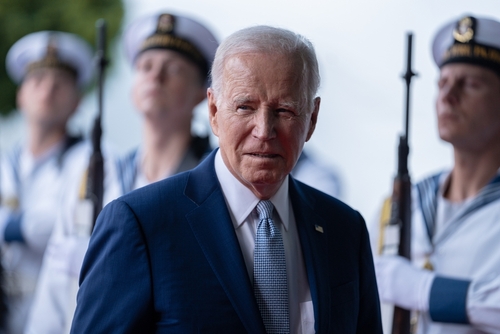Republicans are turning to black pastors in Detroit in hopes of boosting their outreach to black voters, especially with Michigan playing a critical role in the upcoming election. A victory in Michigan could solidify Donald Trump’s path to the White House, and his campaign is focusing efforts on building trust within black communities by leveraging the influence of local pastors.
Last Thursday, Pastor Lorenzo Sewell of 180 Church, who recently delivered a powerful speech at the Republican National Convention, led a roundtable discussion in downtown Detroit. The event aimed to engage the community through a familiar and trusted source—the black pastor.
Sewell, who has been a lifelong Republican voter, shared that his political stance was not widely known until Trump’s visit to his church in July, which he referred to as his “coming-out party.”
“My whole life, I’ve had the honor to serve in Detroit, Pontiac, and Saginaw,” said Sewell. “Always serving in Democratic strongholds but always voting Republican.”
Apostle Ellis L. Smith of Jubilee City Church in Redford also spoke at the event, explaining his involvement in politics. “I’m often asked why I’m even involved with this whole political madness going on in our country right now,” Smith said. “But I’m not politically motivated. I’m really not a Republican, I’m not a Democrat, I’m a Bible-crat.”
Smith emphasized the need for a biblical approach rather than one shaped by race or culture. “We have to begin to think biblically,” he said. “Not culturally, biblically. Not black or white, biblically. As a grandparent, and now I’m a great grandparent, I don’t want little boys who think they’re girls going into the bathroom with my grandchildren.”
Smith also highlighted the importance of Detroit in the broader national context. “As Detroit goes, so goes America,” he said. “And as America goes, so goes the world. So what we do and how we do it has the capacity to change everything.”
Clinton Tarver, owner of Clint’s Hotdog Cart and Casual Catering and a Republican candidate for the Ingham County Commission, knows the challenges of being a black Republican. “One friend of mine asked for a Trump sign,” Tarver recalled. “So he could burn it. That’s cold, you know? But it’s the kind of stuff that we go through.”
Tarver’s goal is to shift perceptions so that seeing a black Republican isn’t a surprise. “People need to be free to make their own choices,” he said. “We have to give them something to choose.”
Martell Bivings, a black Republican running for Congress against Democrat Shri Thanedar in Detroit, was absent from the roundtable but has stressed the importance of genuine outreach to black voters. Without it, Bivings warned, the votes Trump hopes for won’t materialize. “I know those black men. I’m related to those black men,” Bivings said. “They’re not going to go to the polls. They’ll say, ‘I ain’t make it to the polls; was Election Day last week?’”
Alexandria Taylor, executive vice chair of the 13th District Republicans, echoed Bivings’ concerns, emphasizing the need for consistent engagement. “I think it has to be the ground game, the door knocking,” Taylor said. “I’m someone that spent the majority of my adult life in the Democrat Party, and then I switched and came over here, and there are stark differences.”
Taylor added that Republicans need to avoid the pitfalls they accuse Democrats of. “The Democrats, to me, take advantage of the black vote. So we can’t do that same thing and expect it to just pop out of thin air,” she said. “We have to be willing to do the work and have the conversations. There’s no way around the hard work.”
The only non-pastor speaker at the event was Michigan’s Republican Senate candidate, Mike Rogers. Rogers, a former congressman, recently joined Sewell in outreach efforts in Pontiac to connect with black voters.
“I’m not asking you to be a Republican,” Rogers told the pastors. “I am asking you to take a chance on a set of ideas that will help this community, that will help us all grow.”
While the pastors touched on topics like abortion and transgender rights, Rogers focused on the issue of literacy, particularly in the black community, which he said is a barrier to future success. “We have a literacy crisis in America, and it’s not just in black neighborhoods or Hispanic neighborhoods or white neighborhoods, it’s all of us,” Rogers said. “Eighty percent of Michigan students cannot read at grade level.”
Rogers framed education as a crucial civil rights issue. “I think education today may be the biggest civil rights issue of our lifetime,” he said. “If you can’t read by the fourth grade, you have a 70% chance of going to prison or being on welfare.”
As Republicans ramp up their outreach efforts, particularly through the influence of faith leaders, they hope these connections will help shift some black voters toward their party.






